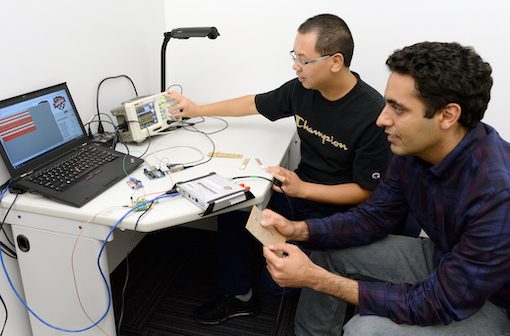Solomon Okopi is the General Manager Commercial, Port Harcourt Electricity Distribution Plc. He speaks to Engineers’ Forum correspondent on current issues in the Electricity sector explaining why Discos could not extend Covid-19 palliative to customers as earlier rumoured and the tariffs regime. He also talks on FG/Siemens deal
You have been a player in the energy sector right from your years in Sahara Energy Resource Limited, what is your assessment of the sector as a whole during the Covid-19 pandemic and now the lockdown is gradually being eased up?
Okopi: The COVID-19 impact on the energy sector affected the proper wheeling of electricity power to commercial and industrial section of the business. As you are aware, the bulk of revenue realization comes from the commercial and industrial tariff classes. During the lockdown, the residential where below 30% of energy consumption occurs were the frontier on revenue realization and as such affected the sector in terms of ATC&C and market operators remittance.
During lockdown Nigerians clamoured for palliative to be extended to them through payment of electricity bill. That didn’t sail through. What was the reason?
Okopi: Prior to now, the government was giving a minimum subsidy to the DISCOs in the tariff rate of the Customers and as such the charges were a bit lower than the current [e.g. fifteen naira (N15.00) for the residential rates]. As you are aware the last MYTO (multiyear tariff order) which the last review happened in 2017 has its average tariff rate at N33.00. The Customers are seeing this as a bit too high for them to afford considering the current state of living in the nation now. The news had it that countries like Ghana has such palliative on utility payments for her citizens and on that premise Nigerians, haven gotten a hint of the National Assembly deliberation on the issue (which was not approved) concluded that same treatment be given to them and this affected the payment of consumed electricity bills
Consumers feel that Service Reflective Tariffs should be a precursor to Cost Reflective Tariffs and not what is obtainable now. What’s your take on this?
Okopi: Currently, the Distribution aspect of the power sector is having the most hit in terms of profit making and market operators (MO) remittance as a result of this effect (Non reflective tariff). Yes, the services render to Customers in terms of electricity might not be on its apex as the need for a thorough network reconfiguration cannot be over emphasis. The fund in which this can be done can not be gotten provided the sector keeps running their business with non-cost reflective tariff and NO investor would put his/her money into such business. However, the current regulation of WILLING SELLER and BUYER project across DISCOs will help resolve this issue.
Recently Discos submitted their Performance Improvement Plans (PIPs) to NERC. What were the outputs and Key Performance Indicators?
Okopi: The PIP submitted to the NERC by all DISCOs borders on the current state of the industry, challenges and way forward. The main output was Tariff BAND which brought about the proposed cost reflective tariff review that is to commence January 2021 (although formerly July 2020), cluster project and premium power project. The major KPIs are ATC&C, Billing Efficiency and Collection Efficiency.
The Meter Asset Provider (MAP) gives meter vendors the responsibility to deploy meters. Why is meter deployment still a challenge despite price review by NERC and what do you think should be done?
Okopi: Firstly, one major challenge faced in MAP is availability of these Meters. Do the Vendor have these Meters readily? Yes, NERC reviewed the cost of getting these meters from the Vendors, which you know has added to the issues faced by DISCOs from the Customers. The Customers see only the Distribution Companies not the Vendors, GENCOs or TCN. Most of the approved Vendors do not have the capability/capacity of delivering the product as fast as possible. In my opinion, the cost of NEW Connection which include Meters and accessories should be embedded as a total cost at the point of entry into a network. The cost to be factored into the Customer’s account and payment to be made on installment basis by the Customer based on DISCO’s policy.
People have suggested that the privatization model of the Nigerian Electricity Supply Industry (NESI) should use Performance-Based Incentive model based on output measures. What is your take on this?
Okopi: Yes, in every business or project baseline revenue/profit is the key word. In the case of Distribution Companies and its privatization, the model adopted was not performance based rather region. Performance based incentive model is a very nice method of pushing the DISCOs to go extra miles in actualizing result, but the Federal Government also has a role to play in terms of infrastructures/ network reconfiguration. You will agree with me that in India, which is where the model was copied, the franchised areas for the DISCOs are not as large as what we have here (where one DISCO covers more than four States), the franchised areas should be minimized so that DISCOs can comfortably cover the landmarks.
Let’s finally look at the FGN/Siemens deal which many people consider is the right step in the right direction. What is involved in the deal and what steps should be taken to ensure the success of the deal?
Okopi: The agreement between FG and Siemens AG was signed by President Buhari in July 2019, which is geared towards upgrading the power sector by 25, 000 Megawatts by 2025. Yes, this is a welcome development and a relief to the power industry as record has shown now that the average power consumption of energy has dropped from 3800MW to 3755MW which is a clear indication of poor network infrastructure. It is obvious that Nigeria currently does not have the capacity to take a large volume of power (MW) which l believe with the emergence of the investor (s) such will be handled. But the Federal Government will need to take the project in phases – since this is five years deal, there should be a five-phase plan, where performance measurement will be a key to moving to the next phase.










